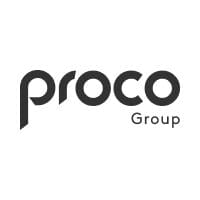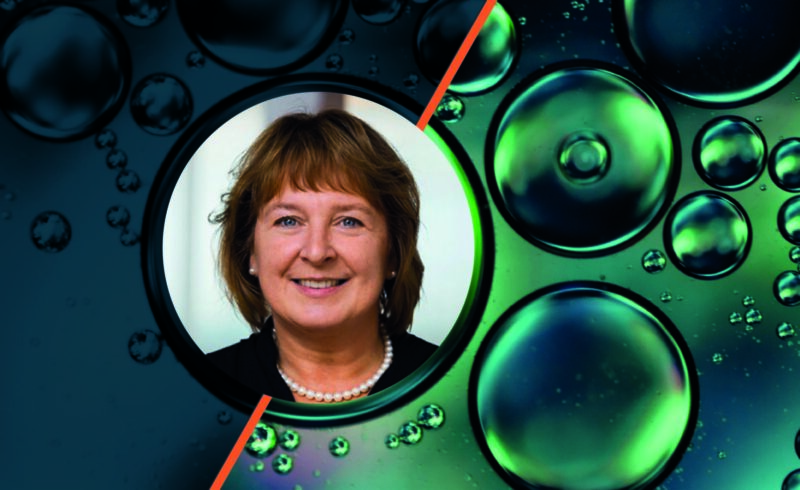A 2021 report from Catalyst found that women only accounted for approximately 16% of board members in the chemicals sector globally.
In the ever-evolving chemical industry, embracing diversity, equity and inclusion (DEI) isn’t just a trend – it’s a necessity.
Proco Group partners with organisations that are driving positive change. One organisation at the forefront of this is AkzoNobel, a global leader in specialty paints and coatings.
As part of a new series, Board-Level Insights: Women in Chemical & Materials Industry Leadership, we sat down with Karen-Marie Katholm, AkzoNobel’s Chief Integrated Supply Chain Officer (CISCO), a key member of their Executive Committee, as well as an experienced board member for a number of companies. Karen-Marie shared how the company is embedding DEI into its core strategies from the very top, with a particular focus on women in leadership roles.
In this article we share the 6 powerful insights Karen-Marie highlighted that are driving real change across AkzoNobel.
1. Leading by Example: Top-Down Change
In 2022 the European Union passed a regulation that defined a new goal for organisations that are part of EU member states: by 2026, 40% of non-executive directors on their boards must be women. A key objective of the new regulation was to:
"“ensure that gender balance in corporate boards of large listed EU companies is established across the EU and appointments to board positions are transparent and that candidates to board positions are assessed objectively based on their individual merits, irrespective of gender.”"
This new goal is aligned with a crucial point that Karen-Marie emphasised – meaningful change begins at the top.
At AkzoNobel, women represent 30% of their supervisory board – a deliberate move that ensures diverse perspectives are woven into their decision-making processes.
But it’s not just about having women present; it’s about reshaping leadership to reflect better inclusivity. This level of representation is particularly noteworthy given that women are still significantly underrepresented on boards globally.
2. Making DEI a Priority: Integrating DEI Objectives into KPIs
One of AkzoNobel’s standout strategies is integrating DEI objectives into the KPIs of their executive leaders and Board members.
With women already holding a number of executive positions, the company is actively working to increase this percentage to 30% by 2025.
By embedding DEI goals into performance metrics, AkzoNobel ensures that these objectives remain a focal point in leadership discussions.
3. Fostering Community: Creating DEI Spaces
A cornerstone of AkzoNobel’s DEI strategy is the establishment of supportive communities for advocates.
The company organises global sessions where senior leaders engage actively with DEI initiatives, offering sponsorship and a platform for voices to be heard. These gatherings are crucial for building an inclusive culture and addressing the needs of all employees.
By establishing these communities, it allows employees to confidently share their concerns and needs. It also creates a channel for companies to hear pressing issues from across the workforce.
Addressing issues, no matter how minor they seem, is essential for fostering a more inclusive workplace. One revealing example Karen-Marie shared was the lack of separate locker rooms for women at some company sites. This oversight highlighted persistent implicit biases.
4. Listening and Adapting: Continuous Employee Feedback
Karen-Marie highlighted the importance of ongoing employee feedback. AkzoNobel regularly surveys its staff using tools like Eletive to measure satisfaction. The data shows that teams with a better gender balance tend to report higher satisfaction and improved quality and safety scores. This data-driven approach allows the company to refine its DEI strategies continually.
5. Investor Influence: The Business Case for Gender Balance
An interesting trend Karen-Marie noted is the growing investor preference for companies with a strong gender balance.
A 2023 report from Morgan Stanley Wealth Management found that 66% of the high-net-worth investors they surveyed said that it’s important that companies hire and promote employees of diverse backgrounds. The survey also found that 63% also said it’s important to have people of diverse backgrounds in leadership positions.
This shift underscores that DEI isn’t just an ethical imperative, but also a financial and reputational asset. In essence, diversity is proving to be a smart business strategy.
Another crucial point Karen-Marie raised is the increasing diversity among investors themselves. Today’s investors come from a wide range of backgrounds, bringing varied perspectives and priorities. This diversity influences their investment choices, with many prioritising companies that demonstrate strong DEI commitments.
For AkzoNobel, aligning with these values not only attracts but also retains a diverse investor base, further solidifying the business case for comprehensive DEI practices.
6. Building the Pipeline: Attracting Female Graduates
AkzoNobel is not waiting for change to happen; they’re also driving it from the ground up.
The company is dedicated to hiring female graduates and has executive leaders directly involved in this process. High potential candidates meet Karen-Marie and other female executives during the interview process to show female representation. Ensuring these executives are available and visible throughout the interview process at all levels is crucial, and it has received very positive feedback from participants.
This hands-on approach ensures that a substantial portion of new hires are women, laying the groundwork for a diverse future leadership team.
Additionally, AkzoNobel are proud to have strong mentorship programmes and initiatives, particularly those involving female senior leaders, to support company to retain and attract diverse talent.
–
Our conversation with Karen-Marie Katholm offered a deep dive into how AkzoNobel is championing DEI from the board level down. The company’s dedication to gender diversity, along with its strategic initiatives and inclusive policies, sets a high standard for the chemical industry. While progress is evident, ongoing efforts are vital to achieve true equity and an inclusive environment for all, which includes gender, cultural background, physical abilities, neurodiversity, LGBTIQ+ and all other aspects.
At Proco Group, we’re excited to share Karen-Marie’s insights and look forward to further discussions that can shape the future of DEI across the chemical sector.
Proco Group partners with chemical organisations like AkzoNobel to find sought-after, diverse talent to fill critical roles. For a conversation about your company’s hiring or DEI strategy, please don’t hesitate to get in touch.
Adam Harman, Partner, EMEA, +447990 306595, adam.harman@weareprocogroup.com
Sassa Bailey, Associate Partner, EMEA, +44 12 7303 2676, sassa.bailey@weareprocogroup.com




